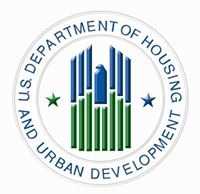WASHINGTON, DC – February 3, 2012 – (RealEstateRama) — Hundreds of very low-income senior citizens will have access to affordable supportive housing thanks to $31.5 million in housing assistance announced today by the U.S. Department of Housing and Urban Development (HUD). The funding announced today (see attached list) will help non-profit organizations in five states produce additional accessible housing, offer rental assistance, and facilitate supportive services for the elderly. Read a detailed summary of each grant
The capital advances and rental subsidies are provided through HUD’s Section 202 Supportive Housing for the Elderly. Last November, HUD announced $545 million in Section 202 grants nationwide to 97 grantees in 31 States and Puerto Rico. In addition to funding the construction, acquisition, and rehabilitation of multifamily developments, HUD’s Section 202 program also provides million of dollars in rental assistance so that residents in selected developments only pay 30 percent of their adjusted incomes.
“The Obama Administration is committed to helping our senior citizens find an affordable place to live that is close to needed healthcare services and transportation,” said HUD Secretary Shaun Donovan. “These grants and continued rental subsidies will help provide critically needed housing to some of our most vulnerable citizens.”
Section 202 grantsprovide very low-income elderly persons 62 years of age or older with the opportunity to live independently in an environment that provides support services to meet their unique needs. HUD provides these funds to non-profit organizations in two forms:
- Capital Advances. This is funding that covers the cost of developing, acquiring, or rehabilitating the development. Repayment is not required as long as the housing remains available for occupancy by very low-income elderly persons for at least 40 years.
- Project Rental Assistance Contracts. This is funding that goes to each development to cover the difference between the residents’ contributions toward rent and the cost of operating the project.
Residents must be “very low income” with household incomes less than 50 percent of their median for that area. However, most households that receive Section 202 assistance earn less than 30 percent of the median for their area. Generally, this means that a one-person household will have an annual income of about $13,500.
###
HUD’s mission is to create strong, sustainable, inclusive communities and quality affordable homes for all.
HUD is working to strengthen the housing market to bolster the economy and protect consumers; meet the
need for quality affordable rental homes: utilize housing as a platform for improving quality of life; build
inclusive and sustainable communities free from discrimination; and transform the way HUD does business.
More information about HUD and its programs is available on the Internet at www.hud.gov and
http://espanol.hud.gov. You can also follow HUD on twitter @HUDnews, on facebook at
www.facebook.com/HUD, or sign up for news alerts on HUD’s News Listserv.
Section 202 Grant Awards
|
STATE |
CITY |
GRANTEE |
Capital Advance |
3-Year |
TOTAL |
| California | Hayward | Eden Housing, Inc. |
$3,494,200 |
$398,400 |
$3,892,600 |
|
|
|
|
|||
| Indiana | Indianapolis | Fay Biccard Glick Neighborhood Center at Crooked |
$5,773,300 |
$570,900 |
$6,344,200 |
| Michigan | Alexandria | Volunteers of America National Services |
$10,795,500 |
$972,900 |
$11,768,400 |
| New York | Buffalo | Belmont Shelter Corporation |
$7,396,100 |
$636,600 |
$8,032,700 |
|
|
|
||||
| Ohio | Toledo | Preferred Properties, Inc. |
$1,397,700 |
$141,000 |
$1,538,700 |
|
TOTAL |
$28,856,800 |
$2,719,800 |
$31,576,600 |
Contact:
(202)-708-0685











